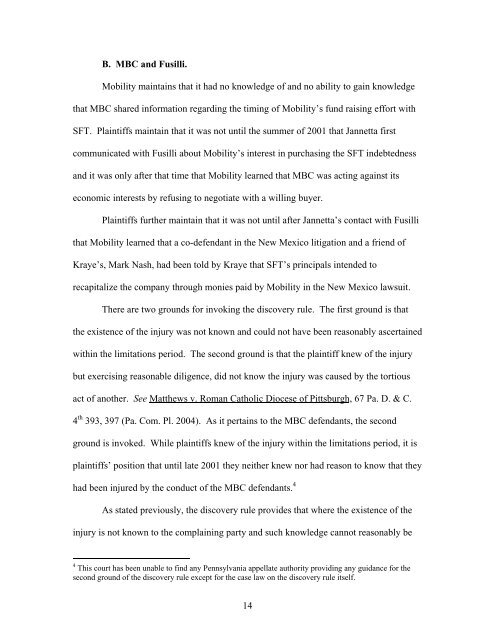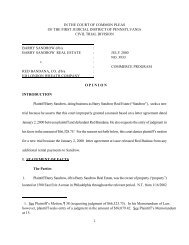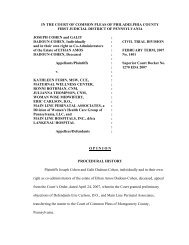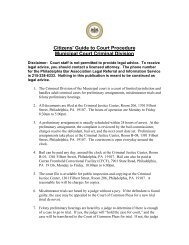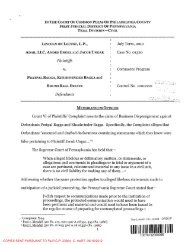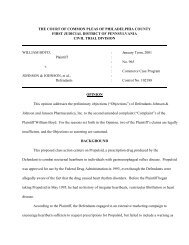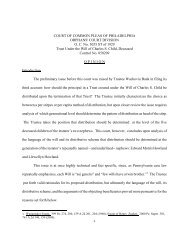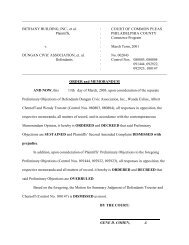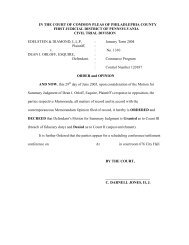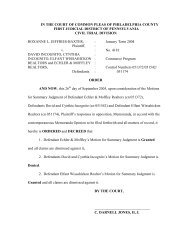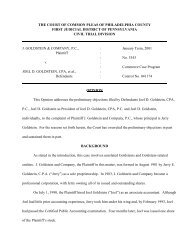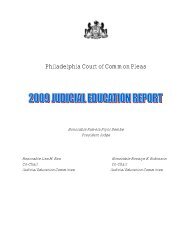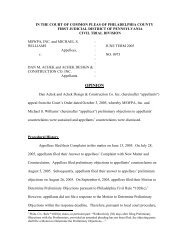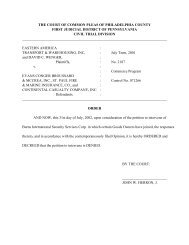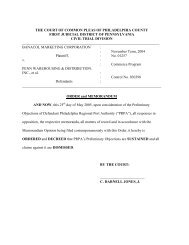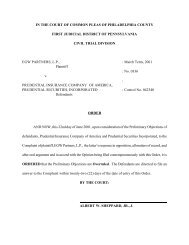BRIAN MALEWICZ, ET. AL. vs MICH'L BAKER - The Philadelphia ...
BRIAN MALEWICZ, ET. AL. vs MICH'L BAKER - The Philadelphia ...
BRIAN MALEWICZ, ET. AL. vs MICH'L BAKER - The Philadelphia ...
You also want an ePaper? Increase the reach of your titles
YUMPU automatically turns print PDFs into web optimized ePapers that Google loves.
B. MBC and Fusilli.<br />
Mobility maintains that it had no knowledge of and no ability to gain knowledge<br />
that MBC shared information regarding the timing of Mobility’s fund raising effort with<br />
SFT. Plaintiffs maintain that it was not until the summer of 2001 that Jannetta first<br />
communicated with Fusilli about Mobility’s interest in purchasing the SFT indebtedness<br />
and it was only after that time that Mobility learned that MBC was acting against its<br />
economic interests by refusing to negotiate with a willing buyer.<br />
Plaintiffs further maintain that it was not until after Jannetta’s contact with Fusilli<br />
that Mobility learned that a co-defendant in the New Mexico litigation and a friend of<br />
Kraye’s, Mark Nash, had been told by Kraye that SFT’s principals intended to<br />
recapitalize the company through monies paid by Mobility in the New Mexico lawsuit.<br />
<strong>The</strong>re are two grounds for invoking the discovery rule. <strong>The</strong> first ground is that<br />
the existence of the injury was not known and could not have been reasonably ascertained<br />
within the limitations period. <strong>The</strong> second ground is that the plaintiff knew of the injury<br />
but exercising reasonable diligence, did not know the injury was caused by the tortious<br />
act of another. See Matthews v. Roman Catholic Diocese of Pittsburgh, 67 Pa. D. & C.<br />
4 th 393, 397 (Pa. Com. Pl. 2004). As it pertains to the MBC defendants, the second<br />
ground is invoked. While plaintiffs knew of the injury within the limitations period, it is<br />
plaintiffs’ position that until late 2001 they neither knew nor had reason to know that they<br />
had been injured by the conduct of the MBC defendants. 4<br />
As stated previously, the discovery rule provides that where the existence of the<br />
injury is not known to the complaining party and such knowledge cannot reasonably be<br />
4 This court has been unable to find any Pennsylvania appellate authority providing any guidance for the<br />
second ground of the discovery rule except for the case law on the discovery rule itself.<br />
14


